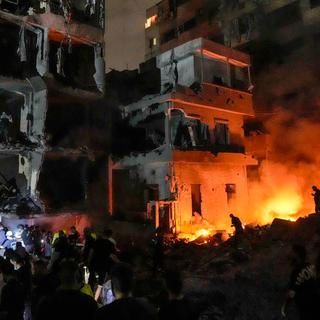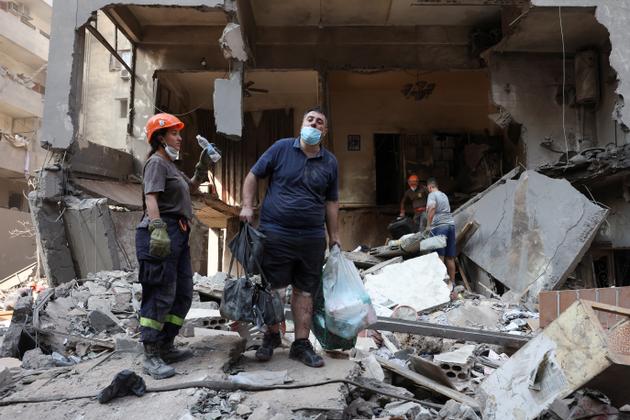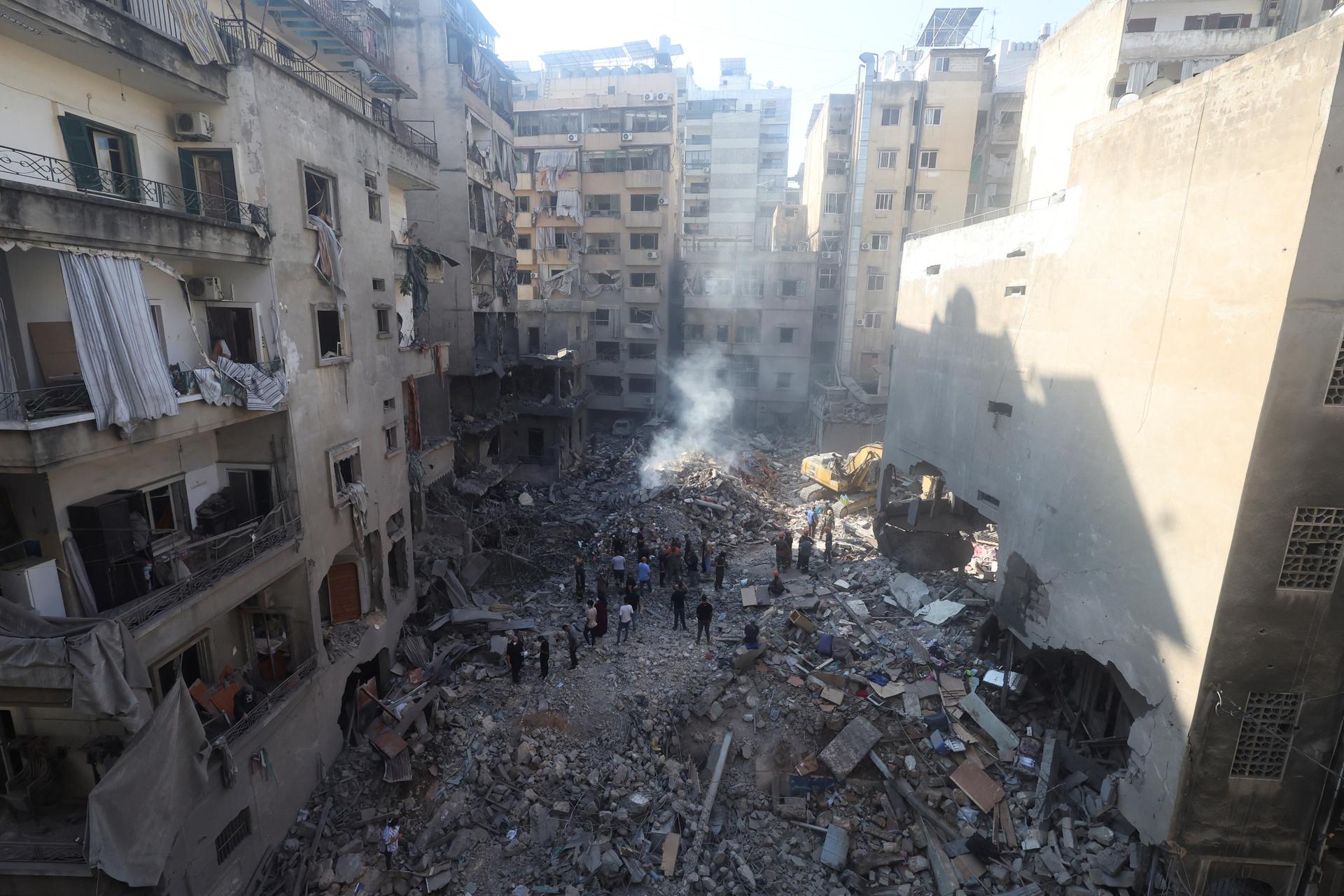


Israeli strikes in central Beirut: 'No part of the city is safe anymore'
FeatureIsrael bombed the center of the Lebanese capital twice on Thursday evening, killing 22 people. Hezbollah says that the target of these strikes survived. It was the third attack in 10 days on the heart of the city.
Two loud explosions and chaos. It was just after 7 pm on Thursday, October 10, when Beirut was rocked by two explosions that emptied the streets in the center of the Lebanese capital. Passers-by and motorists gave way to ambulances racing down the roads, sirens blaring, to or from the densely populated Ras Al-Naba'a neighborhood and the adjacent Basta district. Just as Beirut residents had settled into a sort of "bombing routine" over the past few days, with the Israeli air force targeting the southern suburbs of the capital on a daily basis, the war suddenly invaded the heart of the city.
The death toll − 22 dead, along with 120 wounded − and the state of one of the two buildings targeted – collapsed and on fire – indicate that the Israeli air force was sparing nothing in its attempts to eliminate its chosen target, with no concern for the lives of residents in the immediate vicinity.


According to Lebanese and Israeli security sources, the person targeted by the two strikes was Wafiq Safa, 64, a key Hezbollah figure and the relay between Hassan Nasrallah, the party leader killed in an Israeli strike at the end of September, and the Lebanese security services and other political factions. During the night, Al Manar, the Shiite movement's TV channel, said that Safa had survived the attacks: "The assassination attempt against the head of Hezbollah's coordination unit, Wafiq Safa, failed."
The US Treasury Department put him on its sanctions list in 2019. At the time, he was accused of "exploiting Lebanon's ports and border crossings to smuggle and facilitate the movement" of goods and people for the benefit of Hezbollah. In particular, Safa was considered to be one of those responsible for smuggling arms for the organization. He played a major role in the prisoner exchange between Hezbollah and Israel in 2006. He is also accused of obstructing the investigation into the Beirut port explosion in 2020, notably by threatening the main investigator, Judge Tarek Bitar. As Nasrallah's personal emissary, Safa had visited the United Arab Emirates in March, for the first public visit by a Hezbollah representative to the Gulf monarchy.
A new level
By targeting Safa, Israel has taken its policy of assassinating senior Hezbollah figures to a new level. After targeting the commanders of the armed wing and the group's central leadership, the Israel is now targeting "public" or "political" figures. For several days now, the Israeli air force has also been attacking associations linked to the group, including its first-aid and civil defense units. The message sent out on Thursday evening by Benjamin Netanyahu's government is that no-one belonging to Hezbollah is safe any longer.
You have 53.3% of this article left to read. The rest is for subscribers only.
